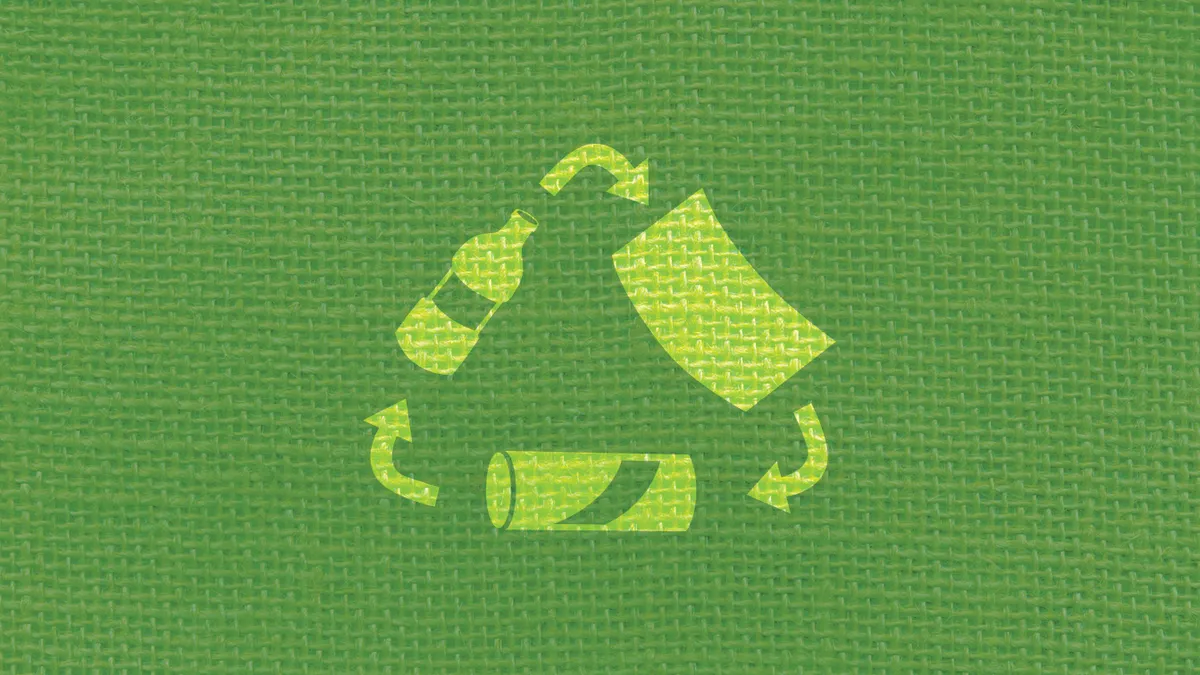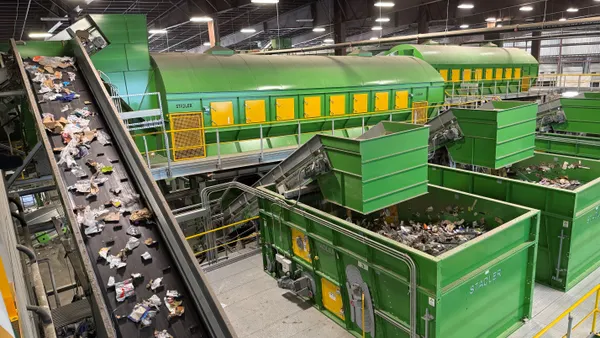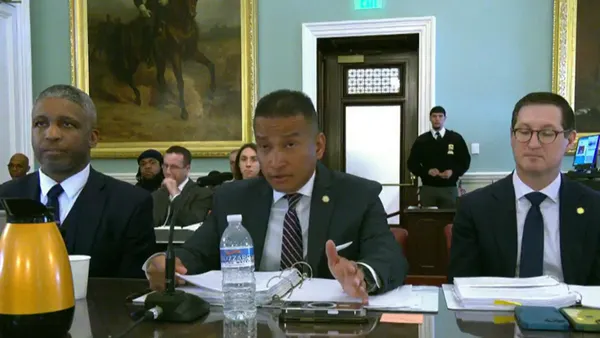Dive Brief:
- The Association of Plastic Recyclers’ original Demand Champions program asked companies to voluntarily commit to raising the amount of post-consumer resin (PCR) used in products they made or bought. Now, a new Government Recycling Demand Champions program aims to boost the market further by asking local governments to opt for products containing PCR.
- Spearheaded by the Northeast Recycling Council (NERC), the collaboration presents government buyers with trash bags, drainage pipes, roll carts and other supplies made with PCR and offered at the same price.
- The program also introduces a new sign-up option that delays commitment, in which governments can agree to start purchasing PCR products within a year. Lynn Rubinstein, NERC's executive director and manager of the new program, anticipates most participants will choose this option because it provides time to figure out what options are available and how to buy them.
Dive Insight:
From libraries to court houses to the curb, governments purchase a lot of plastic goods, including bags, collection carts or containers, and even outdoor furniture. So far, Rubinstein has observed that many governments default to products made with virgin resin, or don’t pay attention to the recycled content of the supplies.
Asking these bulk-buying customers to ramp up how much PCR content is in what they purchase could help ensure recycling and resin reuse continue. “If we're ignoring them, and not encouraging them to play an active role in buying products with post-consumer recycled content, we are undermining the ability of the domestic recycling industry to thrive,” Rubinstein told Waste Dive.
Increasing PCR purchasing complements the original Demand Champions mission of boosting PCR use in the manufacturing of "work in progress" items such as pallets and crates. Started in 2017, it asked companies to voluntarily report to the Association of Plastic Recyclers (APR) each year with updates on the purchase or production of products containing PCR. The growing list of companies have worked with APR to incorporate more of the recycled resin, like in roll carts with bulky rigid plastic components.
While private sector participants agree to start improvements right away, any government entity can sign up for the program at one of two levels. Full “champions” can commit to immediately buying products with PCR, while “advocates” promise to start incorporating those choices within a year.
Rubinstein said she pitched the idea of the “advocate” level of commitment because pivoting to products made with PCR can be complicated. While investigating what the program would look like, she learned that navigating government chains of command could take time. Employees interested in buying PCR products, for example, aren’t always the people in charge of making those purchases or vetting options on the market. Depending on the law, some governments can’t simply change who they write checks to as they may have to bid on supplies or work within existing contracts.
Even if current supplies have some recycled resin, Rubinstein ran into a few cases where no one knew if the recycled component was PCR specifically, even the manufacturer. “Judging by other ventures I've had in this regard, often it's not something people know. You can talk to the salesperson and they haven't a clue,” she said.
NERC and APR want to make pivoting to PCR products as seamless as possible. Besides offering a grace period where participants have time to figure things out internally, the team is also assembling a how-to guide that will detail who to contact at various suppliers and which products meet the qualifications. NERC plans to have that guide available in a few weeks, along with a webinar explaining the new program.
Rubinstein said arguments in favor of the change include highlighting how replacement products with PCR can cost the same as traditional options, and that shifting purchasing habits may help bring down the cost of municipal recycling programs over time. If potential customers are skeptical of manufacturers’ claims about PCR content, she also pointed to a new certification program from APR as a resource.
As participants roll in, Rubinstein said some may even do new research and realize they're already purchasing some products with PCR. Otherwise, she said, “I think most existing public-sector, non-federal purchasing that's taking place is blind to whether something has recycled content or not.”













